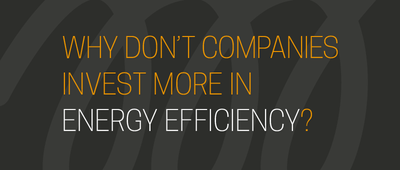Columnists: Davide Cannarozzi, GNE Finance

Published on: 22 Oct 2021
How to make the most of the energy transition opportunity
The energy transition is the most significant economic opportunity of the 21st century. Yet we are astonishingly unprepared to make the most of it. In fact, progress in this area has slowed almost to a crawl. The average renovation rate in Europe today remains at 1%, well below the targeted 3%, and only one-fifth of these renovations result in deep energy savings. This is at a time when rising gas prices threaten to increase already-unacceptable rates of energy poverty.
There are, however, billions of euros available for renovation efforts through government-managed stimulus packages such as NextGenerationEU. However, before we can expect stimulus packages to work at the ground level, we must ensure local and regional market knowledge and the capacity to deliver. Otherwise, the dream of a carbon-neutral Europe remains a dream. The status quo will ensure that the decarbonisation resources sit paralysed in an inefficient European-wide net of micro-bureaucracies.
We experienced red tape and gridlock in every single initiative we have been working in collaboration with the public administration. Competences on building decarbonisation are spread amongst various entities and authorities, making the decision process full of hurdles and barriers. Political and electoral dynamics destabilise and pollute solutions and programs that should have stable and solid bases, with a long-term approach. All this makes public-led initiatives extremely lengthy, inefficient and lacking the necessary focus on demand: citizens are not at the centre of this process.
Progressive and Effective Solutions
It is worth looking at the market for positive evolution and promising initiatives. One pioneering effort from Italy gives a glimpse of what an effective application of EU funds looks like: the Italian Super Bonus is a fiscal credit scheme offering up to a 110% tax deduction for property owners that implement building upgrades that qualifying as deep energy renovation. These fiscal credits can be traded with third parties such as utilities, ESCOs and banks, effectively creating a fiscal coin. The measured impact of this type of instrument is positive for all stakeholders: homeowners get all their projects with no upfront costs, professionals and construction companies have strong business, neighbourhoods are regenerated and the fiscal authority benefits from the engagement of a large part of the (usually) underground market that offsets the loss of direct fiscal income.
By comparison, subsidies and grant schemes are vulnerable to demand-driven market fluctuations and speculations. Because of the worldwide price increase in commodities and the shortage in logistics, renovation projects have lately experienced an average cost increase of over 22%, which continues to grow. There is a serious risk that the benefits of grants will be ultimately completely offset by this spike in projects’ costs. Considering then the bureaucratic burden to originate a public grant and the uncertainty related to its disbursement, these elements produce a strong incentive to avoid public support and rather going ‘old school’: projects executed on the black market with no invoices and measures focused on bathroom and kitchen rather than on energy efficiency.
Unfortunately, this perverse reaction most negatively affects vulnerable populations, who are in the most need of retrofitting to combat energy poverty. In other words, if we Europeans fail to create an intelligent, scalable and comprehensive plan, taking into account our collective experiences and the diversity of our peoples and governments, the energy transition will be yet another factor widening the inequality gap. We will leave our most vulnerable, literally, out in the cold.
Changing the tune
We need governments to step up to boost deep renovation. What we do not need, though, is governments doing more of the same and competing with the private sector. There is a lot of misunderstanding when it comes to the frequently mentioned PPPs – private-public partnerships.
European-level structural change, with international standardisation and national, citizen-centric, agile initiatives, is required. A forthcoming revision of the Energy Performance of Buildings Directive (EPBD) provides a welcome opportunity to set such supporting framework conditions, like minimum energy performance standards regulating the rental and sale of existing homes and buildings. Nonetheless, in addition to directives, we also need collaboration amongst governments, financing entities and industrial players, combined with a deeper understanding of market dynamics.
A bold and radically different approach is necessary to develop realistic, long-term, and self-sustainable decarbonisation solutions. There is a real opportunity to serve our most vulnerable populations betters while lowering building emissions and enabling cities and communities to thrive. This new approach is an unparalleled financial opportunity to stimulate the global green economy and is the definition of triple impact.
GNE Finance is a high-impact investment company focused on providing financing for the built environment. To learn more, visit our programmes page.
View Davide Cannarozzi's presentation at the US-EU Exchange webinar, 20 October 2021: Finance for energy efficiency in residential buildings - the process
Youtube recording can be found here
Link to the upcoming US-EU Exchange webinar: Creating jobs and other benefits of building renovation







